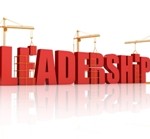 By Dan Cable
By Dan Cable
When you’re a leader — no matter how long you’ve been in your role or how hard the journey was to get there — you are merely overhead unless you’re bringing out the best in your employees. Unfortunately, many leaders lose sight of this.
Power, as my colleague Ena Inesi has studied, can cause leaders to become overly obsessed with outcomes and control, and, therefore, treat their employees as means to an end. As I’ve discovered in my own research, this ramps up people’s fear — fear of not hitting targets, fear of losing bonuses, fear of failing — and as a consequence people stop feeling positive emotions and their drive to experiment and learn is stifled.
Take for example a UK food delivery service that I’ve studied. The engagement of its drivers, who deliver milk and bread to millions of customers each day, was dipping while management was becoming increasingly metric-driven in an effort to reduce costs and improve delivery times. Each week, managers held weekly performance debriefs with drivers and went through a list of problems, complaints, and errors with a clipboard and pen. This was not inspiring on any level, to either party. And, eventually, the drivers, many of whom had worked for the company for decades, became resentful. Continue reading




 By Gwen Moran
By Gwen Moran by Jill Griffin
by Jill Griffin
 Jacqui Canney is executive vice president of the Global People Division for Walmart Inc. She is responsible for attracting, retaining and developing talent within the nation’s largest private workforce.Jacqui joined Walmart in 2015 after more than 25 years of experience in global human resources. She has the unique role of engaging more than 2 million associates globally.
Jacqui Canney is executive vice president of the Global People Division for Walmart Inc. She is responsible for attracting, retaining and developing talent within the nation’s largest private workforce.Jacqui joined Walmart in 2015 after more than 25 years of experience in global human resources. She has the unique role of engaging more than 2 million associates globally.